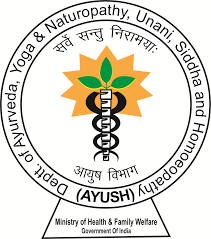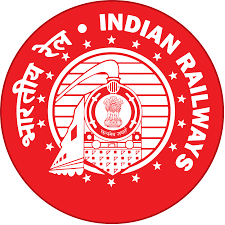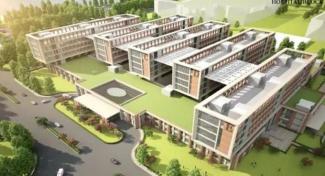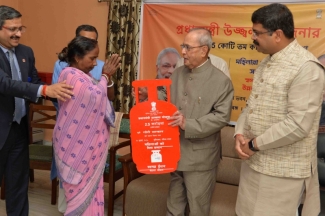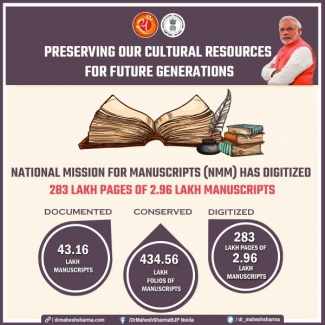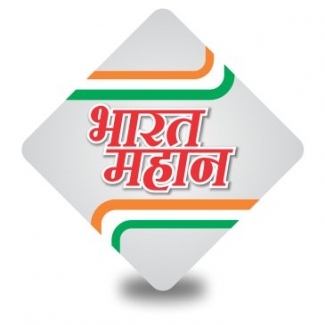
Human Resource Development (HRD) Ministry launched Unnat Bharat Abhiyan 2.0 in New Delhi on Wednesday. Addressing the launching ceremony at AICTE headquarters through video message, Minister of HRD Prakash Javadekar said that the students are the real agents of change who can develop, empower and brighten the future of the country.
Unnat Bharat Abhiyan 2.0 is in line with P M Modi's vision to transform India, in which students from colleges and universities will go to nearby villages to get acquainted with the life of the village people and the problems faced by them in day to day life.
The Minister advised students to involve local village people at every stage of problem identification and solving issues relating to health, cleanliness, waste management, plantation, financial inclusion, women and child development etc.
Addressing the launching ceremony the Minister of State for HRD, Dr. Satya Pal Singh said that India had witnessed the migration of rural population in the past, but now the process of sustainable development through the Unnat Bharat Abhiyan 2.0 will help to reverse this migration.He appealed to the professors and students of the Higher Education Institutions to motivate the rural public, particularly the young generations for social economic development of the villages through various schemes and initiatives of rural development.
Speaking on this occasion, the Secretary (Higher Education) of HRD, R. Subrahmanyam appealed to the student community to take the lead of this programme to make it a national movement. He said that 750 institutions chosen in the first lot have participated in today’s seminar; however, thousands of institutions have offered their willingness to joint this movement. He said that to cover the 45000 villages of the country under this movement, we need the participation of 8252 institutions of Higher Education. He said that PM Modi wants the participation of every single institute of Higher Education in Unnat Bharat Abhiyan 2.0 to make it a people’s movement. He said that Higher Education Institutions are largely funded by Government and people’s money and their participation in this campaign will be a payback time. He said that the knowledge of Higher Education Institutions should be translated in to field in the social and economic growth of rural people. He said that this is the two ways process, and Higher Education Institutions will also learn from the wisdom of rural people while sharing their knowledge.
Under the Unnat Bharat Abhiyan 2.0, the institutions have been selected on a Challenge Mode and the scheme has been extended to 750 reputed Higher Educational Institutes (both public and private) of the country. Also, scope for providing Subject Expert Groups and Regional Coordinating Institutes to handhold and guide the participating institutions has been strengthened. IIT Delhi has been designated to function as the National Coordinating Institute for this programme and the Ministry intends to extend the coverage to all the reputed Higher Educational Institutes, in a phased manner. Each selected institute would adopt a cluster of villages / panchayats and gradually expand the outreach over a period of time.
Institutes through their faculty and students, will carry out studies of living conditions in the adopted villages, assess the local problems and needs, workout the possibilities of leveraging the technological interventions and the need to improve the processes in implementation of various government schemes, prepare workable action plans for the selected villages. Such knowledge inputs would make their way into the development programmes in rural areas. The Institutes would be expected to closely coordinate with the district administration, elected public representatives of panchayat / villages and other stakeholders and will become very much a part of the process of development planning and implementation.
In this process, faculty and students of such institutes would be re-oriented and connected to the rural realities so that their learning and research work also becomes more relevant to the society.







